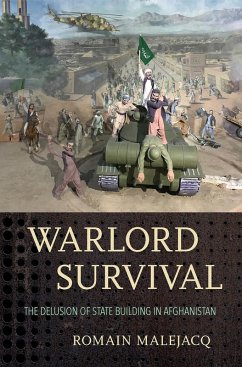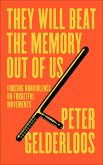How do warlords survive and even thrive in contexts that are explicitly set up to undermine them? How do they rise after each fall? Warlord Survival answers these questions. Drawing on hundreds of in-depth interviews in Afghanistan between 2007 and 2018, with ministers, governors, a former vice-president, warlords and their entourages, opposition leaders, diplomats, NGO workers, and local journalists and researchers, Romain Malejacq provides a full investigation of how warlords adapt and explains why weak states like Afghanistan allow it to happen.
Malejacq follows the careers of four warlords in Herat, Sheberghan, and Panjshir-Ismail Khan, Abdul Rashid Dostum, Ahmad Shah Massoud, and Mohammad Qasim Fahim). He shows how they have successfully negotiated complicated political environments to survive ever since the beginning of the Soviet-Afghan war. The picture he paints in Warlord Survival is one of astute political entrepreneurs with a proven ability to organize violence. Warlords exert authority through a process in which they combine, instrumentalize, and convert different forms of power to prevent the emergence of a strong, centralized state. But, as Malejacq shows, the personal relationships and networks fundamental to the authority of Ismail Khan, Dostum, Massoud, and Fahim are not necessarily contrary to bureaucratic state authority. In fact, these four warlords, and others like them, offer durable and flexible forms of power in unstable, violent countries.
Malejacq follows the careers of four warlords in Herat, Sheberghan, and Panjshir-Ismail Khan, Abdul Rashid Dostum, Ahmad Shah Massoud, and Mohammad Qasim Fahim). He shows how they have successfully negotiated complicated political environments to survive ever since the beginning of the Soviet-Afghan war. The picture he paints in Warlord Survival is one of astute political entrepreneurs with a proven ability to organize violence. Warlords exert authority through a process in which they combine, instrumentalize, and convert different forms of power to prevent the emergence of a strong, centralized state. But, as Malejacq shows, the personal relationships and networks fundamental to the authority of Ismail Khan, Dostum, Massoud, and Fahim are not necessarily contrary to bureaucratic state authority. In fact, these four warlords, and others like them, offer durable and flexible forms of power in unstable, violent countries.
Dieser Download kann aus rechtlichen Gründen nur mit Rechnungsadresse in A, D ausgeliefert werden.









